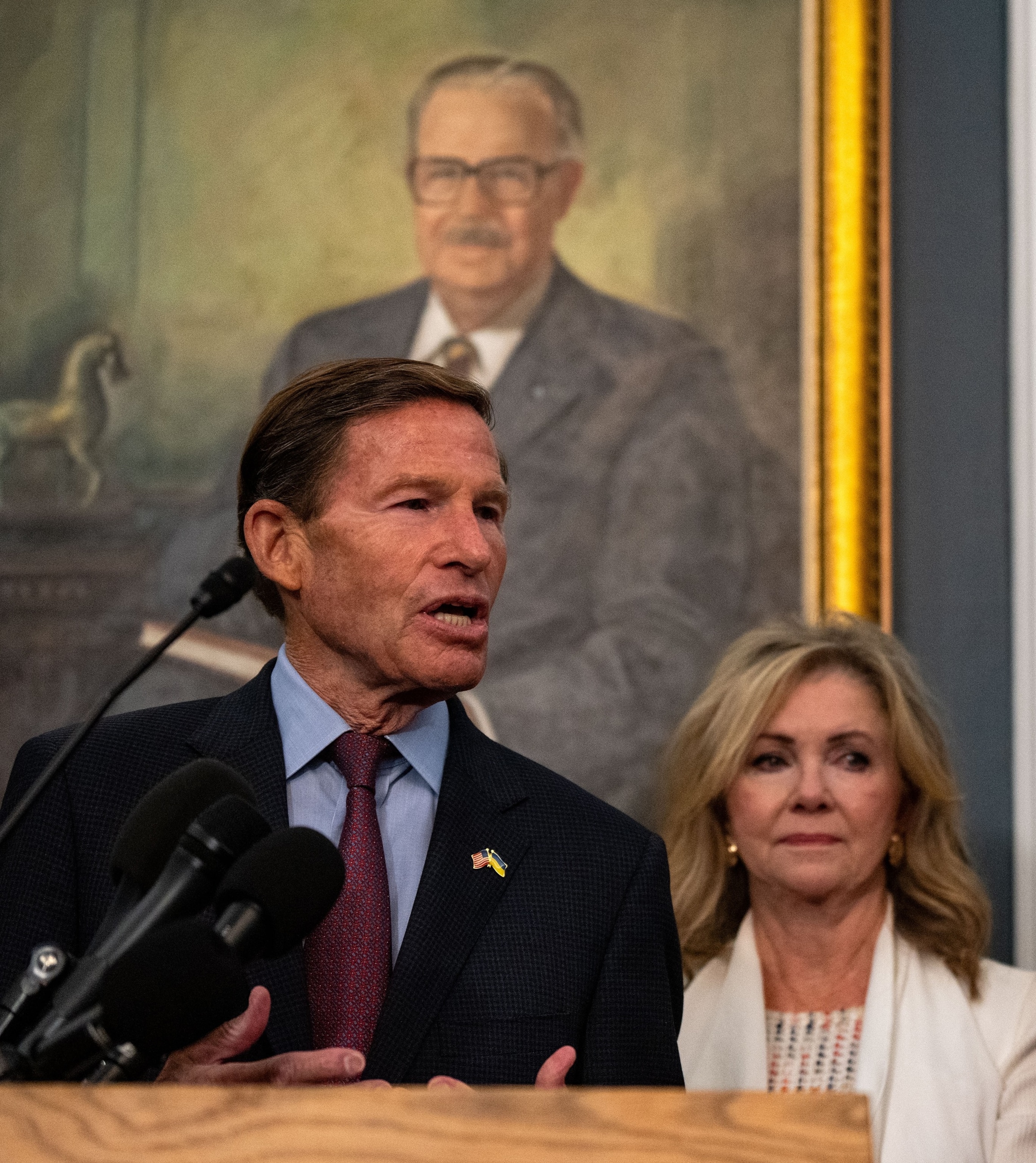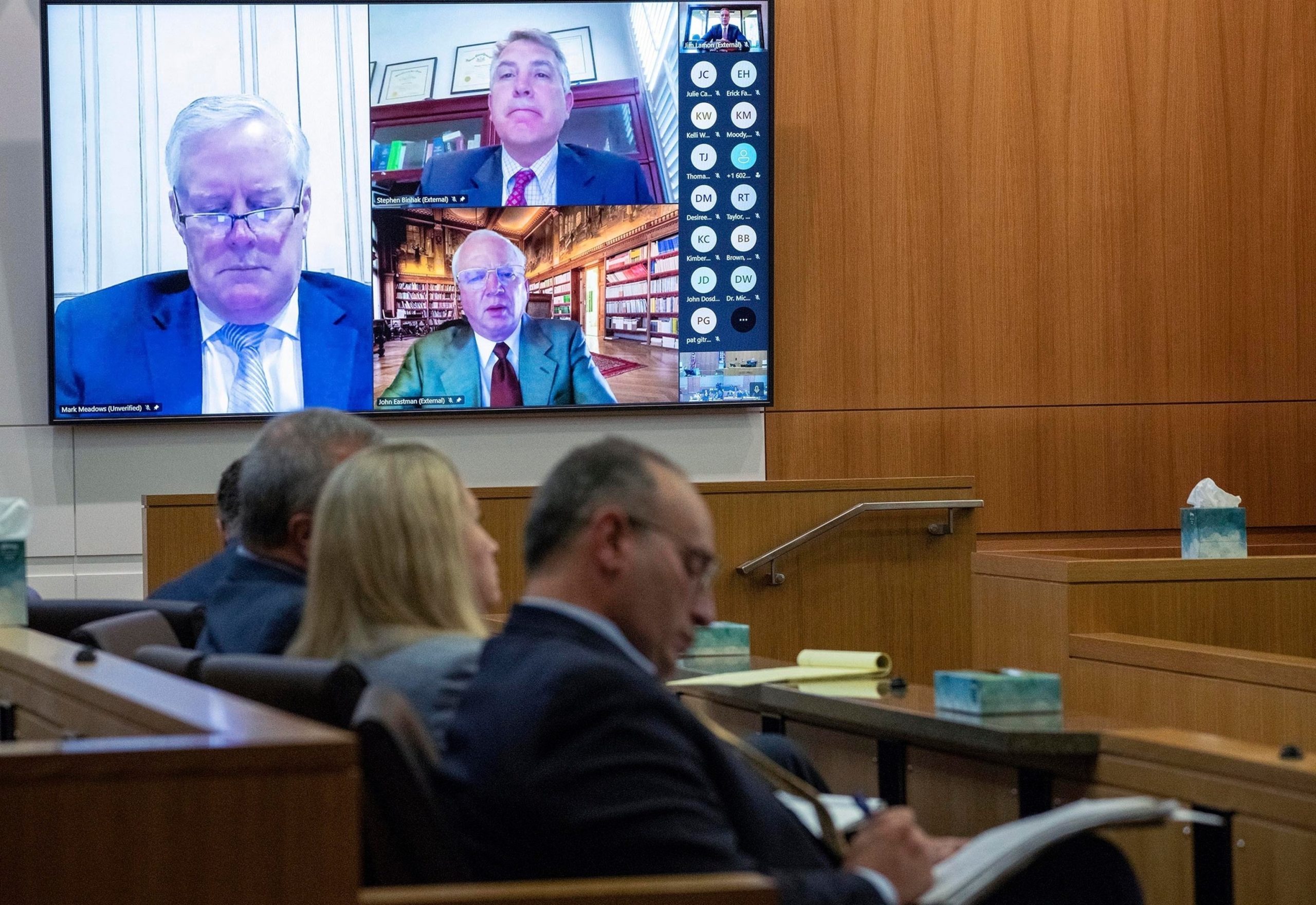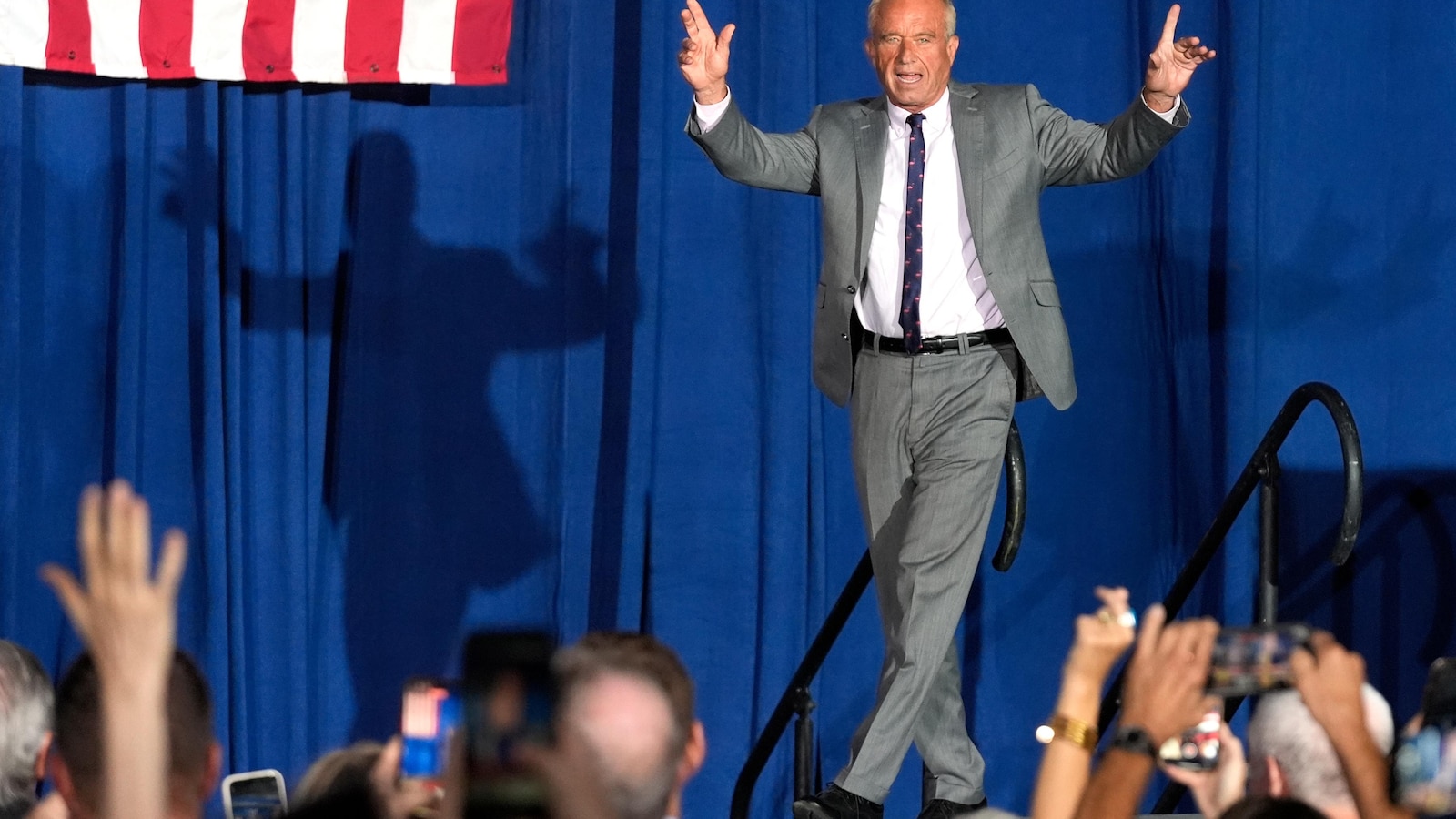The Senate passed two key pieces of legislation aimed at keeping children safe on the internet Tuesday afternoon, marking a major step in Congress’ ongoing effort to regulate massive tech companies.
The two bills, which beef up privacy protection for children and limit targeted advertisements toward them, passed with overwhelming support by senators from both sides of the aisle, 91-3.
The Kids Online Safety Act and the Children and Teens Online Privacy Protection Act have been years in the making as advocates — including parents who have lost their children to suicide, drug use, viral challenges and more — have argued there needs to be more guardrails for children and teens on social media.
The bill now heads to the House of Representatives where it will face further consideration.
House Speaker Mike Johnson has not yet committed to bringing it up for a vote but has signaled willingness to consider it.
“I am looking forward to reviewing the details of the legislation that comes out of the Senate. Parents should have greater control and the necessary tools to protect their kids online. I am committed to working to find consensus in the House,” Johnson said in a statement to ABC News.

Teens use phone in this undated stock photo.
STOCK PHOTO/Getty Images
The package, if signed into law, would create a “duty of care” that mandates that companies must take reasonable measures to prevent and mitigate harms to children and teens, and gives parents and guardians more control over how their children use social media platforms. They also create privacy protections for those under 17, prohibit targeted advertising for young people and allow parents the power to erase content.
It has been more than a decade since Congress enacted meaningful legislation to protect children on the internet. Federal laws on the books were written before Instagram, Snapchat or TikTok were even invented.
Majority Leader Chuck Schumer called the bills “perhaps the most important updates in decades to federal laws that protect kids on the internet” during floor remarks on Monday afternoon.
“Too many kids experience relentless online bullying. Too many kids have their personal data collected and then used nefariously,” Schumer said. “And sadly, sadly, too many families have lost kids because of what happened to them on social media.”
Sens. Richard Blumenthal, D-Conn., and Marsha Blackburn, R-Tenn., have championed the legislation in the Senate and have been fighting for its passage for years. At a press conference last week, the two were flanked by parents holding photos of their children who have lost their lives due to interactions they had via social media.
One mother, Julianna Arnold, shared the story of her daughter passing after an Instagram drug dealer sold her counterfeit drugs. Another parent, Todd Minor, shared the story of his son who died while participating in a viral challenge he saw on TikTok. Both parents are advocates with ParentsSOS, an organization that advocates for safety for kids and teens online.
Blackburn was in tears addressing parents, telling them she is “happy to be a part” of changing the outcome for families like theirs.
Blumenthal, who has helmed a number of hearings about regulating tech, said the legislation is necessary in part because large tech companies have shown that their products cause harm.
“We’ve seen from their own documents, their own files, their own evidence that their business model is to get more eyeballs for longer periods of time, so they get more advertisers and more dollars knowing that those profits are derived from destroying lives, destroying lives of your children,” he said.

Sens. Richard Blumenthal and Marsha Blackburn hold a news conference on the Kids Online Safety Act at the U.S. Capitol on July 25, 2024 in Washington, DC.
Kent Nishimura/Getty Images
Leading tech companies such as Snap, X and Microsoft have all publicly endorsed the legislation.
“The safety and well-being of young people on Snapchat is a top priority. That’s why Snap has been a long-time supporter of the Kids Online Safety Act. We applaud Senators Blackburn, Blumenthal and the 68 other co-sponsors of this critical legislation for their leadership and commitment to the privacy and safety of young people,” Snap said in a statement.
Google, which owns YouTube, declined to comment to ABC News. It has said it supports “several important bipartisan bills focused on online child safety,” but not specifically KOSA.
And while Meta, which owns Facebook and Instagram, has also said it backs legislation to regulate tech platforms, it has explicitly stopped short of endorsing this bill.
“We support the development of age-appropriate standards for teens online, and appreciate KOSA’s attempt to create a consistent set of rules for the industry to follow. However, we think there’s a better way to help parents oversee their teens’ online experiences: federal legislation should require app stores to get parents’ approval whenever their teens under 16 download apps,” a Meta spokesperson said in a statement to ABC News.
TikTok declined to comment to ABC News.
Sen. Rand Paul, R-Ky., who voted against the bill, also gave a speech on the floor before the vote, during which he raised concerns about the bill potentially limiting freedom of speech.
“The bill they’ve written promises to be Pandora’s box of unintended consequences,” Paul said. “It is perhaps understandable that those who sit in this body might seek a government solution to protecting children from any harms that may result in spending too much time on the internet. But before we impose a drastic first-of-its-kind legal duty on online platforms, we should ensure that the positive aspects of the internet are preserved. That means we have to ensure that the first amendment rights are protected,” Paul said.
Sen. Ron Wyden, D-Ore., also said voting against the legislation, citing concerns that the bill could restrict certain kinds of speech.
“Unfortunately, KOSA’s improvements, while constructive, remain insufficient. I fear this bill could be used to sue services that offer privacy-enhancing technologies like encryption or anonymity features that are essential to young people’s ability to communicate securely and privately without being spied on by predators online. I also take seriously concerns voiced by the American Civil Liberties Union, Fight for the Future, and LGBTQ+ teens and advocates that a future MAGA administration could still use this bill to pressure companies to censor gay, trans and reproductive health information,” Wyden said in a statement.
Advocates for the legislation challenge those concerns.
“There are endless myths and misconceptions that have been spread,” Blumenthal said. “There’s no censorship in this bill, it is about product design. There is no invasion of privacy in this bill, we have chosen not to collect information from kids.”
The Senate recently passed a comprehensive package of bills aimed at enhancing online protection for children and teens. The package includes a series of measures designed to address the growing concerns surrounding the safety and well-being of young people in the digital age.
One of the key components of the package is the establishment of stricter regulations for social media platforms and other online services that cater to children and teens. These regulations will require these platforms to implement stronger privacy protections, age verification measures, and content moderation policies to prevent harmful and inappropriate content from reaching young users.
Additionally, the package includes provisions to increase funding for programs that educate children and teens about online safety and digital literacy. This includes initiatives to teach young people how to recognize and respond to cyberbullying, online predators, and other threats they may encounter while using the internet.
The package also includes measures to enhance enforcement of existing laws related to online protection for children and teens. This includes increasing penalties for individuals and companies that violate these laws, as well as providing law enforcement agencies with the resources they need to investigate and prosecute cases of online abuse and exploitation.
Overall, the passage of this comprehensive package of bills represents a significant step forward in the effort to protect children and teens from the dangers of the online world. By implementing stronger regulations, increasing education and awareness, and enhancing enforcement measures, lawmakers are taking proactive steps to ensure the safety and well-being of young people in the digital age.



